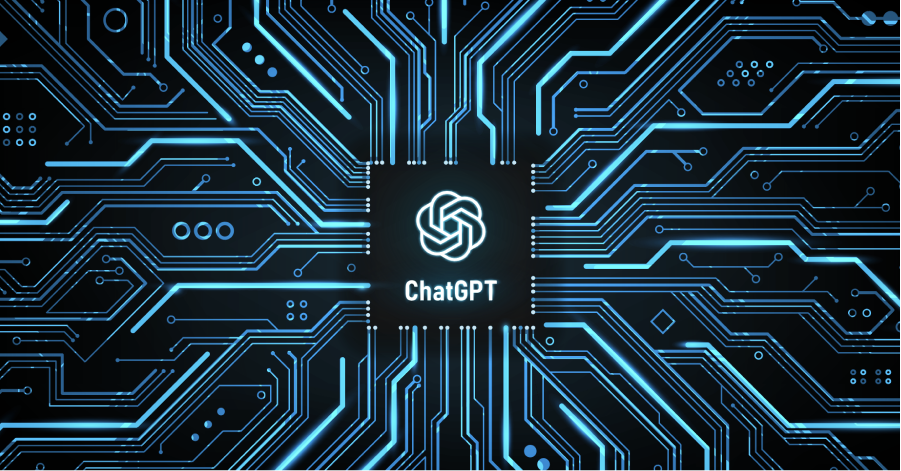Imagine a world with efficient and streamlined software development life cycle (SDLC) processes. In it, high-quality products are delivered at lightning speed. Sounds like a dream, right? Artificial intelligence (AI) can make that dream a reality with ChatGPT.
In this post, we’ll explore how ChatGPT can help overcome common challenges faced during the SDLC process. We’ll see how it can pave the way for a brighter future in software development. Let’s dive into the fascinating world of AI and ChatGPT software development.
What Is ChatGPT and What Can It Do?
ChatGPT stands for Generative Pre-trained Transformer. It is an AI language model developed by OpenAI, the company currently at the forefront of generative AI. The chatbot has come a long way since its inception in 2018, garnering the attention of millions of people from all walks of life.
Over the years, ChatGPT has evolved into a powerful tool capable of the following:
- Understanding context
- Generating human-like responses
- Learning from its interactions
- Summarizing text
- Analyzing sentiment
- Generating code
Primarily used for natural language processing (NLP) tasks, ChatGPT’s potential use cases are growing by the day. And now, it has extended its capabilities even further. We can use ChatGPT for software development, as well.
Common Problems that Arise during the Software Development Life Cycle
Let’s face it: the software development life cycle is no walk in the park. Developers and project managers encounter numerous challenges from start to finish. Being unable to overcome them can seriously hinder the delivery of top-notch software products. The good news is, addressing these problems can lead to better software products and happier clients.
In order to address these issues, we must first identify them. Here are some common problems that software developers experience worldwide:
Inadequate Requirement Analysis
Have you ever played a game of “telephone” and noticed how the message gets distorted as it passes from one person to another? Inadequate requirement analysis is similar. When project requirements aren’t clearly defined or communicated, the end product might not meet the client’s expectations. That leads to rework, increased costs, and unhappy stakeholders.
Poor Communication
Effective communication is crucial for understanding requirements. It helps in setting expectations and ensuring that everyone is on the same page. Complications arising from miscommunication can lead to delays, errors, and frustration.
Technical Debt
When shortcuts and suboptimal decisions are taken throughout the software development process, or best practices are ignored, technical debt builds up. It can lead to the accumulation of additional work and maintenance in the future.
Some companies take on tech debt deliberately, but it must be managed carefully. If left unchecked, tech debt can significantly increase the cost and complexity of future development, as well as lead to the company missing important deadlines.

Insufficient Planning and Estimation
Poor planning and estimation can also impact software development negatively. Failure to effectively plan ahead can result in missed deadlines, budget overruns, and low-quality products. In the worst cases, it can also lead to project abandonment.
Inadequate Testing
Would you fly on an airplane that wasn’t thoroughly tested? Probably not. Similarly, a lack of adequate testing in the software development process can result in buggy software. Either it won’t work as intended or provide a terrible user experience.
Thorough testing is vital to identify and address issues before they reach the end user and put a dent in the company’s reputation.
Lack of Skilled Resources
Not everyone has the budget to hire an army of developers. However, the absence of skilled talent can have a detrimental effect on the software development process. Skilled resources are essential for managing complex tasks and ensuring that projects are completed on time and within budget. A shortage of professional resources can lead to delays, increased costs, and decreased product quality.
Inefficient Processes
Inefficient processes can lead to project delays and increased costs. Companies must streamline their operations to optimize resources and maximize efficiency. This can include automating repetitive tasks, creating standardized templates, or adopting DevOps practices.
Resistance to Change
Remember when everyone was resistant to the idea of cloud computing? Change can be hard, but staying ahead of the competition is crucial. Companies must be willing to embrace change and adopt new technologies to remain competitive. Resistance to change can lead to outdated practices and missed opportunities. Ultimately, you’ll see a decline in the quality of the software product.
Poor Project Management
Finally, there’s project management. From the waterfall model to agile, there are various project management approaches. Poor project management can result in missed deadlines, scope creep, and a lack of overall project cohesion. To ensure the successful delivery of projects, it’s essential to have a well-defined project management process in place.
6 Ways in Which ChatGPT Can Improve the Software Development Life Cycle
With all these challenges, it’s no wonder software development can cause headaches. Fortunately, there are ways to make the process easier and more efficient. ChatGPT for software development is here to the rescue.
Wlile you shouldn’t rely on ChatGPT solftware development alone, alongside human developers, it can help with the following:
1. Turbocharging Code Frameworks with ChatGPT
First, ChatGPT can assist developers in generating code frameworks. It reduces the time spent on manual coding and allows developers to focus on more complex tasks. The AI can speed up the development process by providing a solid starting point.
Moreover, ChatGPT’s ability to understand natural language inputs allows developers to communicate their requirements more intuitively. They can quickly generate code snippets and tailor them to their needs. Once integrated into their projects, it can lead to a more efficient development process.
2. Giving Your Code a Makeover: Refactoring with ChatGPT
Code refactoring is the process of restructuring existing code without changing its external behavior. When refactoring, developers aim to improve its readability, maintainability, and performance. ChatGPT can be a valuable tool in identifying areas of improvement within the codebase. It can provide suggestions and even generate refactored code that adheres to best practices.
ChatGPTs can also help developers identify and eliminate code smells, which are indicators of deeper issues in the code. By addressing these issues proactively, developers can reduce technical debt and ensure that their codebases remain healthy and maintainable over time.
3. Debugging Made Easy
Identifying and fixing bugs can be a time-consuming process for developers, particularly when dealing with large codebases. ChatGPT can help expedite this process by parsing the code and detecting potential issues that could lead to bugs.
It allows developers to evaluate and implement fixes more quickly. This can lead to substantial time savings and a more effective bug-fixing process. The end result is a more reliable and higher-quality software product.
4. Putting Code to the Test: Unit Testing with ChatGPT
As mentioned above, unit testing is a crucial component of the ChatGPT software development process. It’s not a step to take lightly, as it ensures that individual units of code function as intended. ChatGPT can generate unit tests based on the code’s requirements and specifications. It can cover much more ground within a set time frame than a human tester.
ChatGPT allows developers to focus on writing high-quality code while ensuring that potential issues are caught early in development. This can lead to a more efficient development cycle and a more robust final product. It’s like a team member that’s always working, even when you’re taking a break.

5. Monitor Progress with Automated Reports Generated by ChatGPT
ChatGPT can help monitor and report progress in the SDLC by generating automated reports based on project data. These reports are written clearly and concisely and can provide insights into project milestones, resource allocation, and potential bottlenecks, resulting in more effective project management. . Project managers and stakeholders can use them to make informed decisions about the project’s direction.
In other words, our AI partner reduces the likelihood of human error and ensures that all stakeholders have access to accurate, up-to-date information. .
6. Keeping Everyone Connected Through Project Communications
Speaking of communication, ChatGPT can help streamline project communications. It can generate clear, concise, and accurate documentation, meeting notes, and other project-related communications. This can help ensure that all team members have access to the information they need and can contribute effectively to the project.
Project managers can also use AI to analyze and summarize complex information, making it easier for team members to digest and act upon.
The Limitations of ChatGPT in Software Development
Although ChatGPT is an impressive tool with various applications in SDLC, it’s in its infancy. Therefore, it still has limitations and requires a human to guide it. Some of these limitations include:
Domain-specific Knowledge
ChatGPT is capable of understanding and processing a vast range of information. Yet it may struggle with highly specialized or domain-specific knowledge. This limitation can affect its ability to provide accurate and relevant insights or solutions in certain ChatGPT software development scenarios.
For instance, it may not understand the nuances of a proprietary programming language or software architecture.
Dependence on Input Quality
The performance you receive from ChatGPT also largely depends on the quality of the input it receives. Inaccurate or incomplete information can lead to suboptimal or even incorrect output. This only emphasizes the need for experienced software developers to provide AI context and guidance.
Project Management
ChatGPT for software development can assist in certain aspects of project management, such as generating reports or streamlining communications. However, it’s not equipped to handle the complexities of coordinating tasks between various team members or making high-level decisions regarding project direction. Human project managers remain indispensable for these tasks.
Honest Mistakes
As an AI language model, ChatGPT is not infallible and can make mistakes. This is partly due to the nature of its training data, which may contain errors or inconsistencies. Someone who isn’t well-versed in the software development process might not be able to identify when ChatGPT is making mistakes.
Maintaining a critical eye when using ChatGPT and verifying its output to ensure accuracy and relevance is essential.
Bias
ChatGPT’s training data can also introduce bias into its output, as it reflects the biases present in the data it was trained on. This can lead to biased or unfair recommendations or solutions, which must be carefully considered and addressed by software developers to ensure ethical and unbiased software development practices.
Security and Privacy Concerns
Using ChatGPT in a software development context raises some security and privacy concerns. For instance, many industries like finance and national security prohibit the use of AI in certain projects. OpenAI makes it clear that any text or code generated through their AI platform can be used as training data for their models, raising potential privacy concerns.
However, closed-source versions of ChatGPT are on the horizon and may address some of these issues.
ChatGPT for Software Development
ChatGPT has the potential to significantly improve the software development life cycle. Nonetheless, it’s essential to recognize its limitations and ensure that human expertise is still the driving factor behind progress.
If you’re seeking a strategic technology partner to help you streamline your software development process and leverage the power of AI, look no further. Sphere Partners is here to help. Our team offers expert ChatGPT consulting and integration services, state-of-the-art software development, on-demand engineering teams, and enterprise platform implementations.
Contact us today to learn more about how we can help your organization achieve its software development goals.





